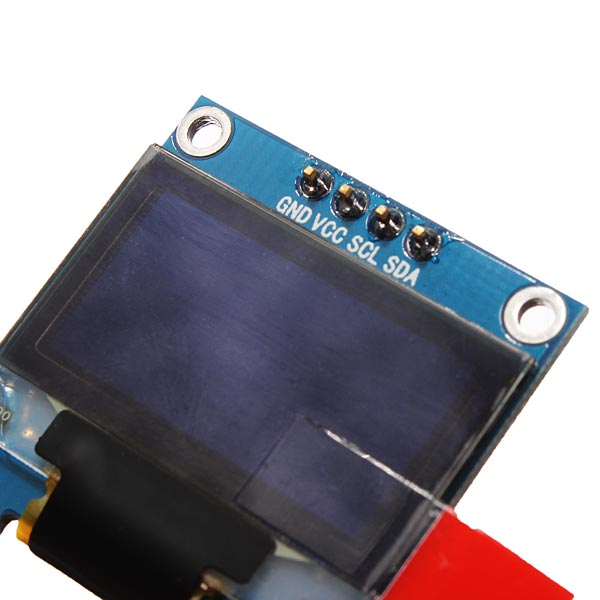This example shows how to connect an I2C OLED display to one of my Arduino’s. Being relatively small size, requiring only 2 connections SDA and SCL from the Arduino but still having good text and graphical capabilities I snapped a couple up cheaply on the net. Here is a picture of the OLED display I bought, these are common on many sites at the moment

i2c oled lcd
The first problem was connecting it up, this proved straightforward enough as the display can take standard 5v and GND and as its an I2C device on my Arduino UNO I hooked up A4 and A5 which are SDA and SCL respectively
Connection
| Pin Label | Arduino PIN | I2C Function | Notes |
|---|---|---|---|
| GND | Ground | Ground | 0V |
| VCC | Power | Power | Regulated 5V supply. |
| SDA | A4 | SDA | Serial data in |
| SCL | A5 | SCL | I2C clock |
Code
Now finding a working library proved to be problematic, I tried various ones and no success, eventually I located the Multi LCD library and have mirrored it at the following link
There are a few examples but here is a basic hello world that will show you how to display some text
[codesyntax lang=”cpp”]
#include <Arduino.h>
#include <Wire.h>
#include <MicroLCD.h>
//LCD_SH1106 lcd; /* for SH1106 OLED module */
LCD_SSD1306 lcd; /* for SSD1306 OLED module */
void setup()
{
lcd.begin();
}
void loop()
{
lcd.clear();
lcd.setFontSize(FONT_SIZE_SMALL);
lcd.println("Hello, world!");
lcd.setFontSize(FONT_SIZE_MEDIUM);
lcd.println("Hello, world!");
delay(1000);
}
[/codesyntax]
[/c]
Links
I2C 128X64 OLED LCD LED Display Module For Arduino on Amazon
I2C OLED displays on Amazon UK
0.96″ 128×64 I2C Interface White Color OLED Display Module for Arduino / RPi / AVR / ARM / PIC
